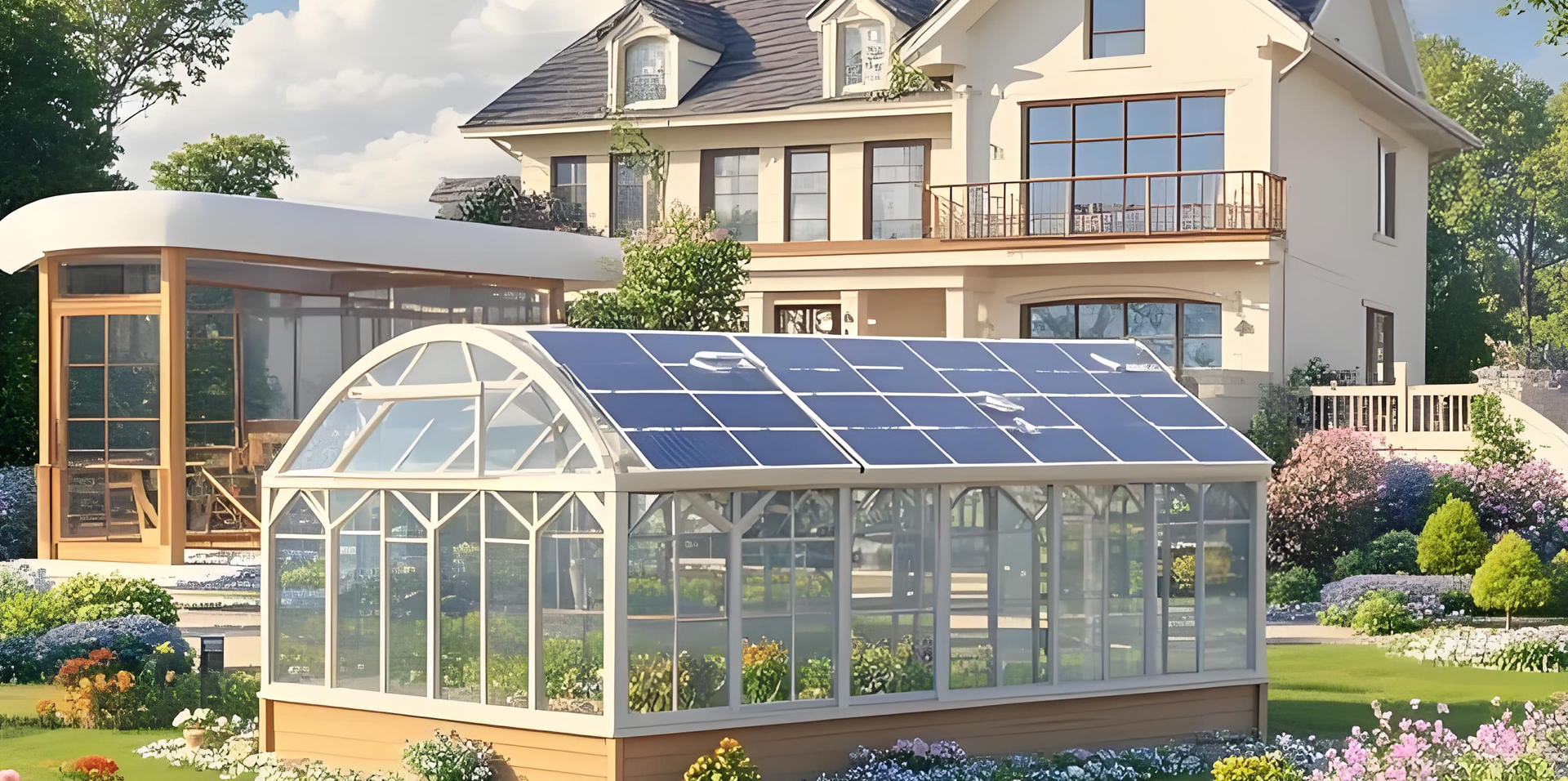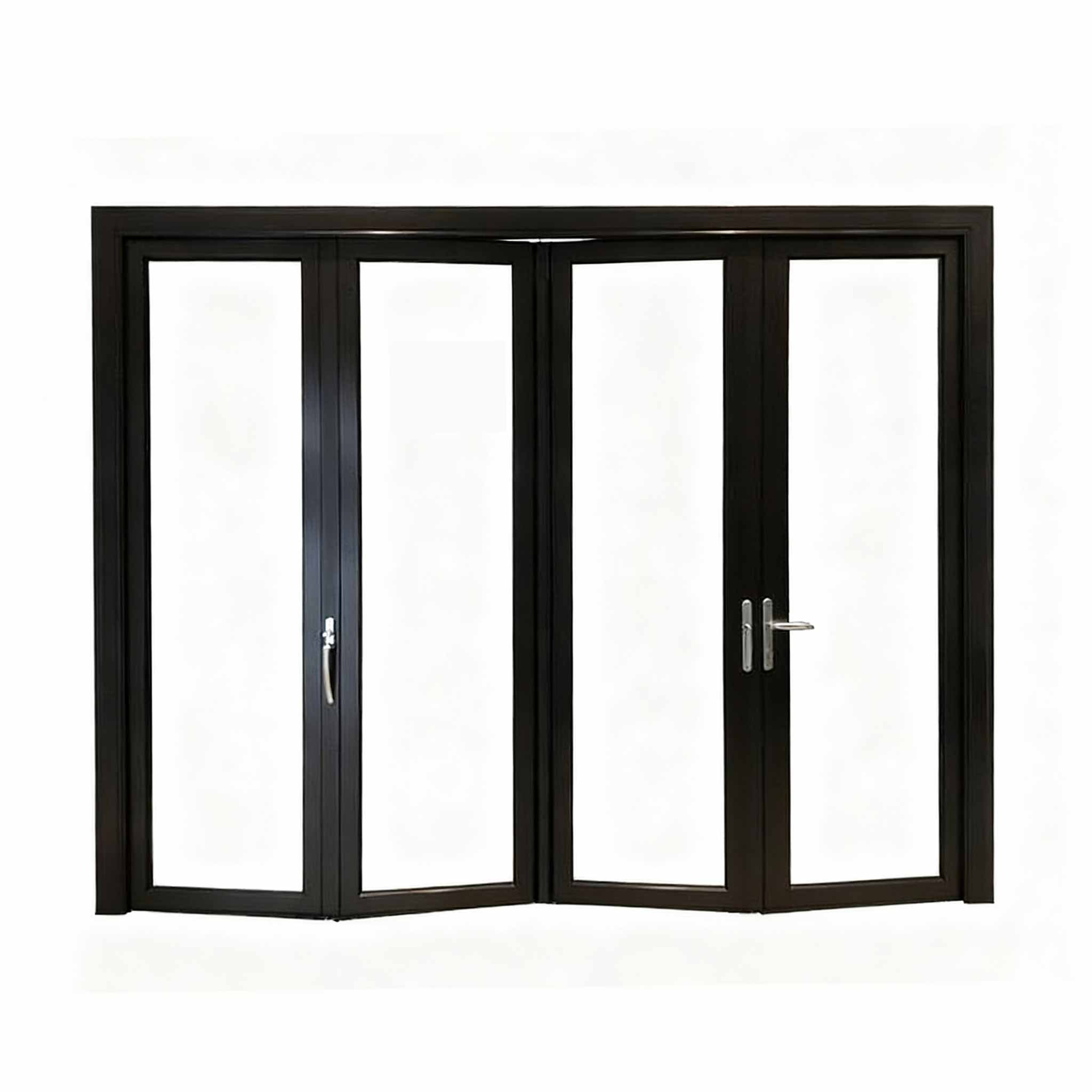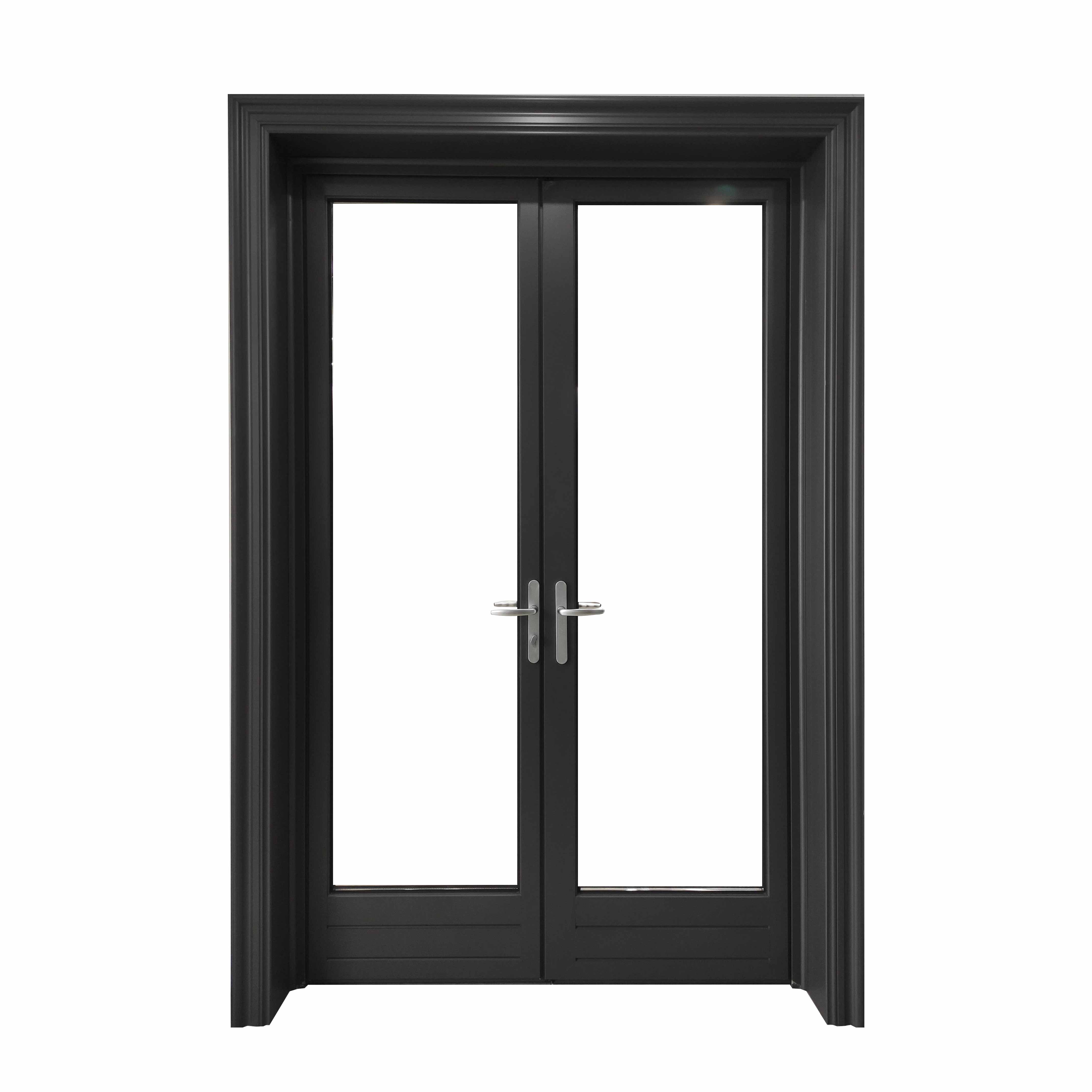Aluminum doors are a popular choice for both residential and commercial properties due to their sleek design, durability, and minimal maintenance needs. However, a common question among homeowners and builders is whether aluminum doors are prone to rusting. This concern is particularly relevant when considering various types of aluminum doors, such as aluminum crittall doors, aluminium house doors, and aluminum external doors. In this article, we will explore the properties of aluminum, the factors that influence its resistance to rust and corrosion, and best practices for maintaining these doors to ensure their longevity.
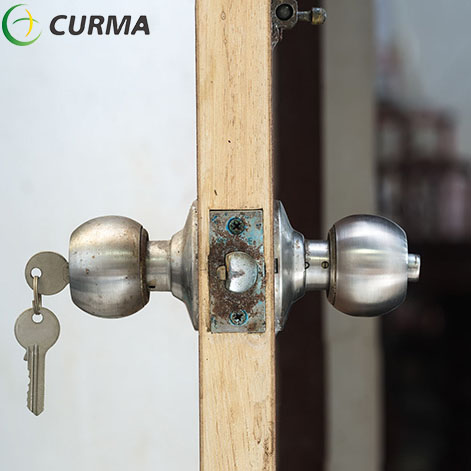
Understanding Aluminum's Resistance to Rust
To determine whether aluminum doors will rust, it's crucial to understand the fundamental properties of aluminum as a metal. Unlike iron or steel, aluminum does not contain iron, which is the primary element that leads to rust formation. Rust, or iron oxide, occurs when iron reacts with oxygen and moisture, forming the reddish-brown flakes commonly associated with corroded metal surfaces. Since aluminum is free of iron, it does not rust in the same way that iron or steel does.
1.The Formation of Aluminum Oxide
While aluminum external doors do not rust, they do undergo a form of oxidation. When exposed to air, aluminum reacts with oxygen to form a thin layer of aluminum oxide on its surface. This layer is incredibly thin, usually just a few nanometers thick, but it is extremely durable and acts as a protective barrier that prevents further oxidation. This is one of the reasons why aluminum crittall doors and aluminium swing doors are highly resistant to corrosion and remain in good condition for many years.
2.Comparison with Other Metals
Compared to other metals commonly used in door construction, such as steel or iron, aluminum offers superior resistance to the elements. Steel doors, unless treated with a protective coating, are prone to rust when exposed to moisture. In contrast, aluminum's natural oxide layer protects it from corrosion without the need for additional treatments. This makes aluminum house doors and aluminum external doors a preferable choice for exterior applications, especially in environments where moisture and humidity are prevalent. Given the aluminium door window price, investing in such doors can offer long-term value and reduce the need for frequent replacements or repairs.
Factors That Affect Aluminum Corrosion
Although aluminium house doors and aluminum crittall doors are highly resistant to rust, certain conditions can affect their corrosion resistance. Understanding these factors can help in selecting the right aluminum door for your environment and in maintaining its appearance and structural integrity over time.
1.Environmental Conditions
The environment in which an aluminium swing door is installed can play a significant role in its corrosion resistance. In marine environments, where saltwater is present, aluminum may experience a different type of corrosion known as galvanic corrosion. This occurs when aluminum comes into contact with dissimilar metals in the presence of an electrolyte, such as saltwater, which can lead to localized corrosion. However, even in these environments, aluminum typically fares better than iron or steel, as long as precautions are taken, such as isolating aluminum from other metals.
2.Surface Treatments and Finishes
To enhance the corrosion resistance of aluminum external doors, manufacturers often apply surface treatments or finishes, such as anodizing or powder coating. Anodizing increases the thickness of the natural oxide layer, providing even greater protection against corrosion. Powder coating involves applying a protective layer of colored powder to the aluminum, which is then baked on to form a hard, durable finish. Both treatments not only improve corrosion resistance but also enhance the door's aesthetic appeal, contributing to the overall value and reducing the aluminium door window price over time.
3.Maintenance and Care
Proper maintenance is crucial for preserving the corrosion resistance of aluminum crittall doors and aluminium house doors. Regular cleaning to remove dirt, salt, and other contaminants can help maintain the integrity of the aluminum's protective oxide layer. While aluminum requires less maintenance than other metals, periodic inspections and cleaning are recommended, especially in harsh environments. Using a mild detergent and water is usually sufficient to keep the door clean, but it's important to avoid abrasive cleaners that could damage the protective surface.
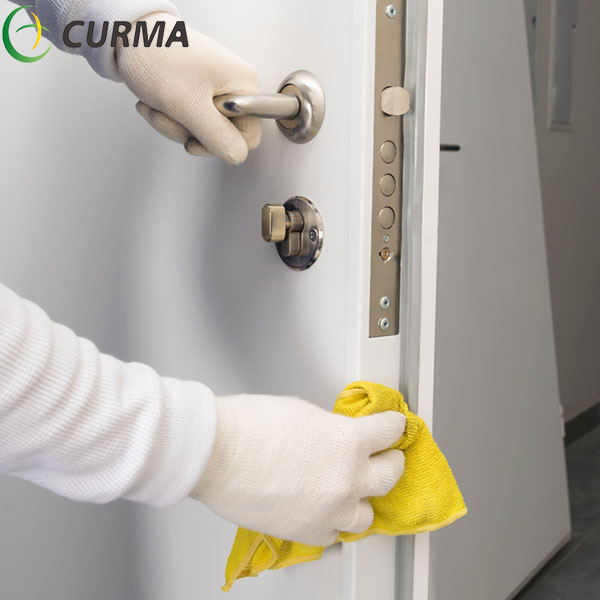
Preventing and Addressing Corrosion in Aluminum Doors
Although aluminum external doors and aluminium swing doors are resistant to rust, they are not entirely immune to all forms of corrosion. To ensure their long-term performance and appearance, it's important to take preventive measures and know how to address any signs of corrosion that may develop.
1.Regular Cleaning and Inspection
Regular cleaning is the first line of defense against potential corrosion. By keeping the surface of the door free of contaminants like salt, dirt, and pollutants, you can prevent substances from compromising the protective oxide layer. During cleaning, it's also an ideal time to inspect the door for any signs of corrosion or damage, such as pitting or discoloration, especially around joints or where the door meets other materials.
2.Use of Protective Coatings
Applying a protective coating can further enhance the corrosion resistance of aluminum house doors and aluminum crittall doors. For example, a clear lacquer or wax can provide an additional barrier against moisture and contaminants, especially in challenging environments. These coatings can be applied periodically as part of a regular maintenance routine to help extend the life of the door, offering more value for the aluminium door window price.
3.Repairing Corroded Areas
If corrosion does occur on your aluminum external doors or aluminium swing doors, it's important to address it promptly to prevent it from spreading. For minor corrosion, sanding the affected area and applying a touch-up paint or protective coating can be sufficient. More extensive corrosion may require professional repair, which could involve removing the corroded section and re-treating the surface with an appropriate finish.
Conclusion
In conclusion, aluminum doors do not rust in the traditional sense due to their lack of iron content. Their natural resistance to corrosion, enhanced by treatments like anodizing or powder coating, makes them an excellent choice for a wide range of applications, particularly in environments where moisture is a concern. By understanding the factors that can affect aluminum's corrosion resistance and taking appropriate preventive measures, you can ensure that your aluminum crittall doors, aluminium house doors, and aluminum external doors remain both functional and aesthetically pleasing for many years. Regular maintenance, environmental awareness, and prompt attention to any signs of corrosion will help maximize the lifespan of your aluminium swing doors, making them a durable and reliable choice that justifies the aluminium door window price.

